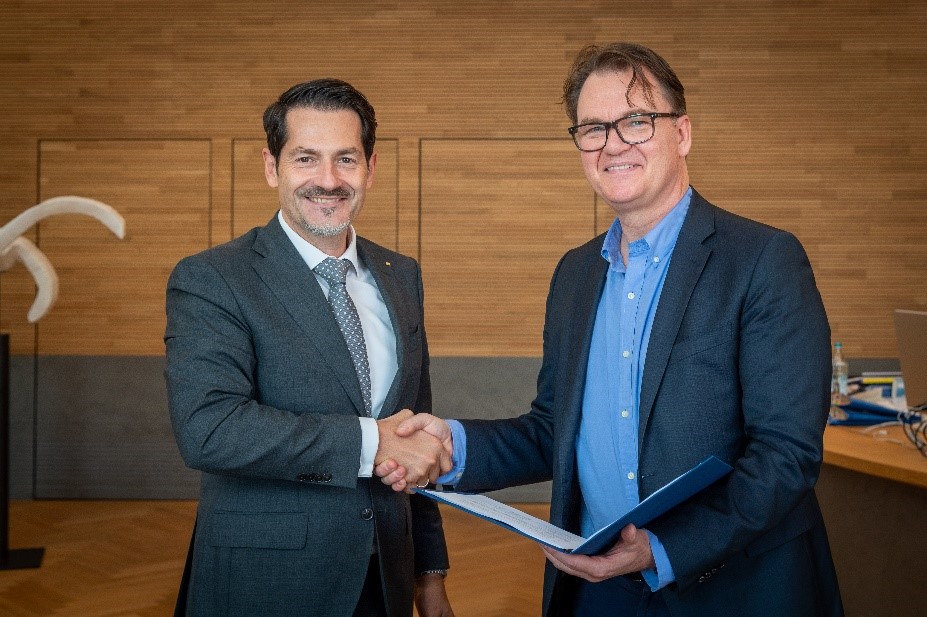● The MuniCat Alliance is a strategic cooperation alliance between the Technical University of Munich in Germany and Clariant in the field of sustainable chemistry and catalysis. The two parties will continue this alliance for another 10 years.
● The development of catalytic technology has generated a large amount of intellectual property rights and has promoted the sustainable development of the chemical industry.
● Future collaborations will ensure continued success of school-industry collaborations in sustainable chemistry and catalysis

Clariant, a specialty chemicals company focused on sustainable development, has renewed its long-term strategic alliance agreement with the Technical University of Munich (TUM) in Germany in the field of research and application of novel catalyst systems. Since 2010, this cooperative alliance known as “MuniCat” (Munich Catalysis Research Alliance) has developed a variety of optimized catalyst formulations and designs as well as innovative process technologies. In the future, the alliance will continue to focus on areas that address challenges facing the sustainable development of the chemical industry through the application of catalytic technologies.
The MuniCat alliance not only combines the existing research, optimization and application capabilities of the two partners, but also covers innovative and novel catalysts and process technologies from both parties. The joint research and development between the two parties has produced many solutions to produce chemicals in a more efficient and environmentally friendly way.
“Over the years, Clariant’s cooperation with the Technical University of Munich has not only achieved many milestones in the field of catalytic technology research and development, but also laid the foundation for a more sustainable future for the chemical industry.” Vice President of Global Research and Development of Clariant’s Catalysts Business Unit Marvin
Estenfelder said, “The cooperation is mutually beneficial for both parties. We use the most cutting-edge research methods and technologies developed at the Technical University of Munich. At the same time, young researchers at the Technical University of Munich can benefit from our rich industry and application technology experience. Therefore, we It is a pleasure to extend this fruitful partnership for another 10 years.”
Address pressing challenges and explore new research areas and catalysts
To date, the two parties have completed more than 30 projects through the cooperative alliance, focusing on the challenges faced by the chemical industry in terms of sustainable development and efficiency improvement. These projects have obtained a number of important intellectual property rights in the design of innovative catalyst formulations, as well as the production and commercial application of catalysts, and have published more than 250 scientific papers related to technological progress and global influence.
“Any significant steps forward in the chemical industry’s transformation towards sustainability can only be achieved through collaboration and innovation. That’s why we are delighted to join forces with such a prestigious institution as TUM to leverage new approaches from academic institutions to advance our sustainability drive technological innovation to accelerate the energy transition.” Richard, Clariant’s Chief Technology and Sustainability Officer
Haldimann added.
Most of MuniCat’s projects aim to address sustainability issues, such as greenhouse gas emission reduction, CO2 conversion and utilization, innovative applications and storage of hydrogen, and the discovery of new raw materials for basic chemicals. New projects addressing these issues are underway, including those applying artificial intelligence (AI), machine learning (ML) and digital tools.
Collaboration between Clariant, Technical University of Munich and Linde also resulted in a new catalyst for oxidative dehydrogenation of ethane (ODH-E), an innovative, low-emission catalytic technology for the production of ethylene ( EDHOX™). The new catalyst has made great progress in improving catalytic selectivity and production efficiency, and can reduce emissions by up to 100% compared with traditional steam cracking.
Continuing the success story of Catalyst: Collaborative research between schools and enterprises brings mutual benefit to both parties
“The renewal of the MuniCat Alliance continues the real success story of both TUM and Clariant in the catalyst industry. Thanks to the successful establishment of the school-enterprise cooperation concept, scientists from TUM and Clariant researchers work together as A pioneer in important research areas, developing more efficient, profitable and sustainable catalysts for the catalyst industry.” Kai-Olaf, Technical University of Munich
Professor Hinrichsen said.
Continued cooperation between the two parties will be dedicated to solving current and future sustainable development challenges. Key areas of cooperation include new technologies that can promote the hydrogen economy and the development of sustainable aviation fuels (SAF), as well as high-performance catalysts for converting CO2 into short-chain alcohols. New technologies in catalysts and recycling of high-value products will play an important role in defining the possible future project agenda. Both parties will also adopt and further develop standard modeling and simulation tools based on artificial intelligence and machine learning methods to ensure high quality.
“We are shifting our research focus towards new developments in sustainable chemistry and its practical applications in industry. The MuniCat Alliance will therefore provide a strong support for our TUM
Make important contributions to the 2030 Sustainable Future Strategy. Our goal is to make TUM a driver of sustainable transformation. ” added Professor Thomas F. Hofmann, President of the Technical University of Munich.

 微信扫一扫打赏
微信扫一扫打赏

